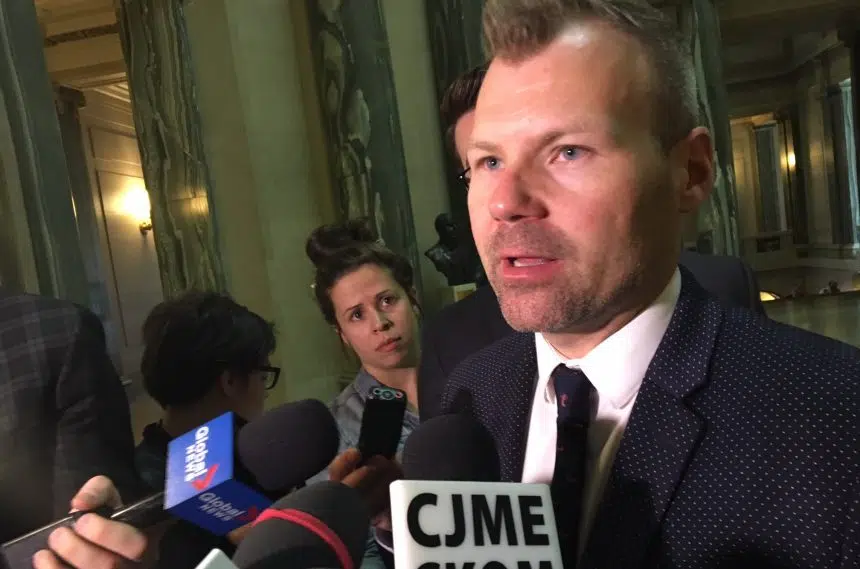Carbon tax or not, the Saskatchewan government is still applying for $62 million in low-carbon federal infrastructure money.
Federal Environment Minister Catherine McKenna has said publicly that Saskatchewan would not be eligible for this branch of federal funding unless the province agreed to a carbon tax.
Environment Minister Dustin Duncan is hoping his federal counterpart will change the position on tying the money to a carbon tax.
“Is this really about reducing emissions or not? If it is about reducing emissions, then Saskatchewan should be eligible just like any other province,” Duncan said.
The $62 million originally earmarked by the federal government for the province would cover a portion of a $200 million investment into green infrastructure through 11 projects.
One of the projects on the list includes building new infrastructure to provide natural gas service to communities such as First Nations which are still using power and diesel to heat homes. Another project aims to retrofit homes to make them more energy efficient.
If approved, Duncan said these projects would also fit within the provincial government’s prairie resilience climate change strategy. Part of the provincial plan sets targets to reduce methane emissions by 45 per cent. One way to do that is to use gases associated with oil production to feed into the natural gas system.
“One of the projects is basically building a backbone pipeline that companies would then be able to feed their associated gases into which then SaskEnergy could then use that for the delivery of natural gas and the heating system,” Duncan explained.
Another project on the list involves using methane gas from landfills to produce power.
Despite the ongoing fight, Duncan said the province has been working with federal officials to make sure the 11 projects included in the funding application met all of the criteria, but still won’t cave to the pressure of signing on to a carbon tax.
“They really shouldn’t be tied together, the federal government doesn’t withhold infrastructure dollars for any other reason in this country other than this,” Duncan argued.
He pointed to the Trans Mountain pipeline situation in B.C. as an example where the federal government is still funding infrastructure projects despite being completely at odds with the province over jurisdiction of pipeline approval.
At this time, Duncan said he has had no indication of when the provincial government might get an answer from the federal government on the decision for these projects.
If the proposals are rejected, he said there are other options for federal funding of green infrastructure. However, those options would put the province in competition with third parties and other provinces which he doesn’t think is fair.
NDP opposition energy critic David Forbes said any of the projects proposed would be great news for the people of Saskatchewan. He particularly pointed to the plan to retrofit homes to improve energy efficiency as one his party has been calling for.
However, he is concerned the Sask. Party government hasn’t made a clear plan to deal with climate change. He said there are still questions about the prairie resilience plan, including clear targets for emissions which are still listed as “to be determined.”
“We want the government to do its homework and we don’t want the people of Saskatchewan held hostage because there’s too much at stake here. We don’t want a carbon tax imposed by the Trudeau government because we haven’t done our homework,” Forbes said, noting the provincial needs to step up.







